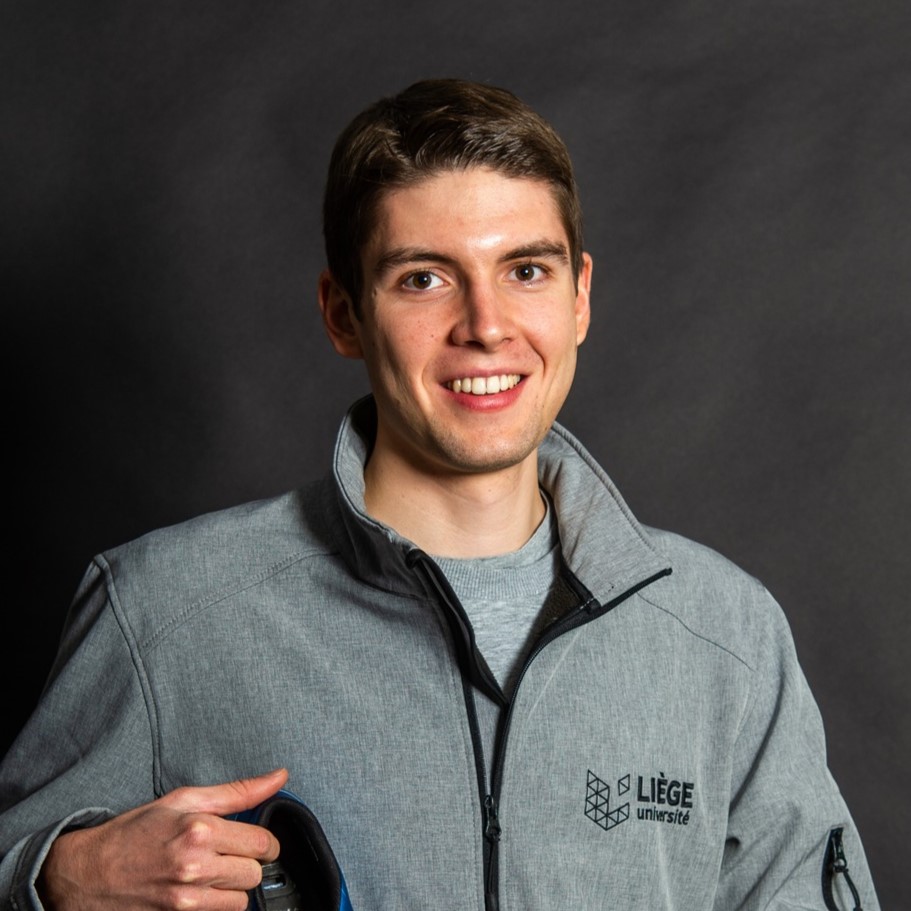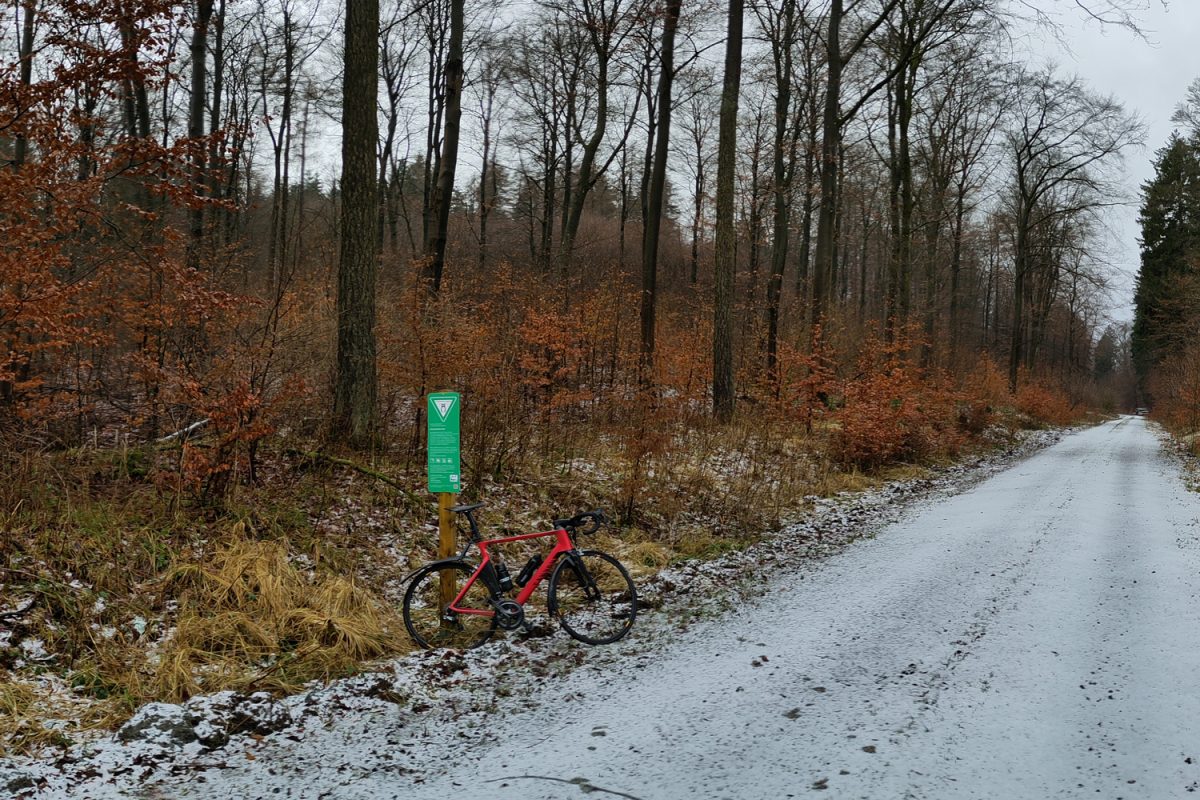Mail from … Braunschweig Max Larry from Belgium spent a month at the Institute for Particle Technology
General Information
That’s what I do in Braunschweig:

That’s me, Max Larry. I’ve been studying and researching at the Université de Liège in Belgium for eight years. Photo: Max Larry/TU Braunschweig
I completed a one-month research stay at the Institute for Particle Technology (iPAT). I found out about iPAT through a work colleague who had met a scientist from Braunschweig at an international conference in Italy. This was followed by an initial contact and a short visit to iPAT in the summer. Once the funding and the timing of the stay had been finalised, the decision was quickly made. That’s how I ended up spending January in Braunschweig. During my stay, the aim was to investigate whether the materials synthesised in Liège could meet current application requirements. Specifically, the electrochemical capabilities of the material were determined.
That’s why I decided to come to TU Braunschweig:
There is a lot of overlap between my current research lab, the GREEnMat at the University of Liège in Belgium, and the Institute for Particle Technology at TU Braunschweig, so the collaboration and the stay are very valuable for both sides. In the field of solid-state batteries, there are only a limited number of research institutes in Europe researching sulphide electrolytes. Due to the ‘proximity’ – both locally and thematically – I wanted to take the opportunity of the newly established contact between the two institutes to strengthen the relationship. As I have been studying and researching at the Université de Liège in Belgium for eight years, I was also very interested in finding out how research works in Germany.
What would you like to do after your stay and can you imagine staying in Braunschweig?
As planned, I will be returning to Liège to continue my research work there. However, another stay in Braunschweig is definitely not out of the question and would certainly be just as enriching as my first stay.
Local life
This is how I live in Braunschweig:
As I was only able to stay in Braunschweig for a short time and this was planned at very short notice, the search for accommodation turned out to be more difficult than expected. After an extensive search on various online portals, I came across an offer where flats with a bedroom, kitchen and bathroom are rented out for longer stays – in the style of a long-term hotel, so to speak.
Even though the institute and my flat were not in the city centre, everything important was within easy reach so that I was not dependent on a car or public transport and could go shopping or visit sports facilities. Basically, everything was either within walking or cycling distance. That was a very pleasant situation for me.
What is the difference between researching in Germany and in your home country?
Compared to research work in Belgium, research here at the Institute for Particle Technology is more industry-orientated and research is applied more quickly. This is also due to the fact that battery research in Germany is better networked with industry than in Belgium. For example, certain finished products or equipment for the laboratories can be purchased here. This shortens the time that has to be invested in the trial-and-error phase and enables faster and meaningful results. Research here is therefore more goal-orientated and involves less basic research.
That’s what I learned here in the first three days:
- “Dafür nicht” means “you’re welcome”.
- Contrary to my expectations, the cycling infrastructure in German cities (at least in Braunschweig) is better developed than the image portrayed in the German media would suggest. Both public transport and cycle paths are increasingly finding their way into the car-dominated city centres.
- For runners, Prinz-Albrecht-Park and the Riddagshausen nature reserve are perfect for a quick sober run, interval training or endurance run before or after work – away from the city traffic.
The biggest challenge during my stay has been:
… getting out of the lab at a good time in the evening. There is always something to do and the many opportunities I have here at the Institute for Particle Technology, for example to test different materials in battery applications, were so unlimited that I sometimes found it difficult to stop working.
That’s what I will take home with me:
Many scientific insights, many experiences and many wonderful memories of interesting conversations and stimulating discussions on both specialised and less specialised topics. The exchange with colleagues and the value created by such a stay are significant and, in my opinion, need neither material nor immaterial souvenirs to be sustainable in the long term.
Good to know
This is my tip for other international students or academics who are planning a stay abroad in Germany:
Start looking for a flat early, especially if it is for a shorter stay. Unless the financing of your stay allows you to consider more expensive options from the very beginning.
In my opinion, this is something that you should definitely try out in Braunschweig/Germany:
… to cycle into the Elm-Lappwald nature reserve. It’s a really beautiful region with a few little-used roads that offer a beautiful view of the Harz Mountains. It would probably be even better to cycle all the way to the Harz Mountains (but I can’t give any guarantees here as I don’t have any experience).
This is something I would like to add:
A big thank you to everyone who contributed to making my stay in Braunschweig so enriching. Your open, courteous and helpful nature made all my experiences possible. You are the reason why I am already looking forward to hopefully seeing you again soon and possibly returning to Braunschweig. “Today is not every day – I’ll be back, no question!”

